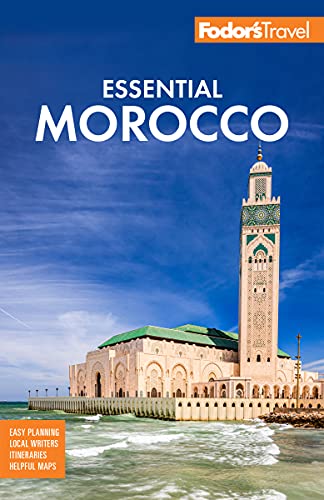Money
Most costs in Morocco are low compared to both North America and Europe. Fruit and vegetables, public transportation, and labor are very cheap. (Cars, gasoline, and electronic goods, on the other hand, are relatively pricey.) Sample costs are in U.S. dollars.
Meal in cheap restaurant, $10–$18; meal in expensive restaurant, $25–$60; 1.5 liters of bottled water, $0.60; cup of coffee, $0.90; museum admission, $1–$2; liter of gasoline, $1.10; short taxi ride, $1–$2. Prices here are given for adults; reduced fees are usually available for children and large groups, but not students or senior citizens.
Because the dirham's value fluctuates, some upscale hotels, tour operators, and activity specialists geared toward tourists publish their prices in euros, but accept dirhams (these places also usually take credit cards).
ATMs and Banks
You'll usually get a better rate of exchange at an ATM than you will at a currency-exchange office, hotel, or even international bank, even accounting for the fees your bank may charge. Reliable ATMs are attached to banks in major cities, and there's one in the arrivals hall at Casablanca's airport. BMCE and Wafabank belong to the Cirrus and Plus networks.
Credit Cards
Inform your credit-card company before you travel, especially if you're going abroad and don't travel internationally very often. Otherwise, the credit-card company might put a hold on your card, owing to unusual activity—not a fun thing to try to resolve halfway through your trip. Record all your credit card numbers and keep them in a safe place in case something goes wrong.
Although it's usually cheaper (and safer) to use a credit card for large purchases (so you can cancel payments or be reimbursed if there's a problem), note that some credit card companies and the banks that issue them add substantial percentages to foreign transactions, whether in foreign currency or not.
Credit cards are accepted at many hotels, upscale restaurants, and more expensive souvenir shops, but there's usually a surcharge to cover their bank fees.
Currency and Exchange
The national currency is the dirham (DH), which is divided into 100 centimes. There are bills for 20, 50, 100, and 200 DH, and coins for 1, 5, and 10 DH and 5, 10, and 20 centimes. As a foreign tourist, you may never see the centime coins. You might hear some people refer to centimes as francs; others count money in rials, which are equivalent to 5 centimes each. A million is a million centimes, or 10,000 DH. There is usually more than one style of banknote in circulation at any time.
The exchange rate for the U.S. dollar is the same at all banks, including those at the airport; wait until you get to Morocco to get your dirhams as they are not available outside the country. For larger amounts, it may be possible to negotiate your rate at a Bureau de Change. You can change dirhams back into U.S. dollars or euros at the airport upon departure, as long as you've kept the exchange receipts from your time of entry. The limit for this transaction is 50% of what you converted over the duration of your stay.




